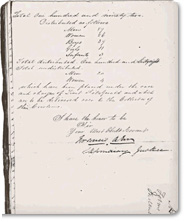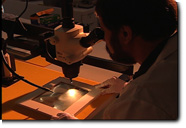

|
ADOPTION REVOLUTION
Based on a ground-breaking book by Adam Pertman, executive director of the Evan B. Donaldson Adoptiotion Institute.
Today, a revolution is unfolding in America – and its effects are rippling through our society. According to one study, nearly six out of every ten people in the US are personally connected to adoption -- whether they are, or are close to, an adoptee, an adoptive parent, or a birthparent whose child has been adopted. The very face of adoption has changed dramatically. Just a couple of decades ago, adoption was regarded with shame and secrecy, but today it couldn't be more different. Adoption is now widely seen as a positive, life-affirming way to create a family. Yet, our societal structure and laws haven't kept pace with this fundamental revolution. Technology, and in particular the internet, has transformed many of the rules and the realities. The increase in open adoptions, international adoptions and adoptions by single parents have readjusted what we think of the structure of the American family, and have made schoolrooms and communities more diverse.
Adoption Revolution is a major multimedia project that will explore how transformations taking place in adoption today are having far-reaching effects on all our public and private lives. Adoption is filled with powerful emotional truths: love and grief, personal bonds relinquished and others created. We will explore these experiences in interviews with adoptive and birth parents and extended families, with adopted children and adults, and adoption professionals and experts.
The two-hour special, inspired by a compelling book by Adam Pertman, Adoption Nation: How the Adoption Revolution is Transforming America, will be linked to an ambitious adoption education effort, with innovative adoption-related materials for public libraries and schools, a new web site with adoption resources, and more. |
|

|
PICTURING THE PAST
History, Memory, and the Popular Image
A series of three one-hour public television programs that examine and analyze the enormously important role of popular visual imagery in creating our nation's understanding of its past.
From Civil War era photographs of slaves to the Iwo Jima Marine Memorial; from Hollywood's "The Last of the Mohicans" to the latest History Channel cable TV offering, millions of Americans experience history in visual - as opposed to textual - forms. This series will illustrate with vivid examples how still images, motion pictures, memorials, and monuments carry historical meaning and affect the way we understand American history in our contemporary culture. Along the way we will illuminate issues of national identity, race, class, and gender embedded in so many of the visual representations that are part of the historical record.
• HOUR ONE: The Documentary Image
• HOUR TWO: Building Memory: Monuments and Memorials
• HOUR THREE: Hollywood and History
|
|

|
Trouvadore
Last Voyage of an African Slaver
In association with Windward Media and KUHT-Houston
A one-hour film about a unique maritime excavation that draws on the tools of archeology, anthropology and DNA forensics to solve a 160-year-old mystery of slavery and identity. While it brings an exciting archeological excavation to life, the film will also tell the story of one man's determined efforts to trace his African roots through a historic shipwreck.
The excavation, and genetic search that will follow, is a scientific and historical detective story that promises to add significantly to our understanding of both the human reality of slavery, and the geo-political factors that allowed the trade to flourish well into the 19th century. By 1840 most countries had banned the slave trade, resulting in smuggling operations of which the Trouvadore voyage was one. Because of the illegal status of the trade, documentary and other evidence about these voyages is scant; this project will help fill critical gaps in our current knowledge. |
|

Conservator examines
world's oldest photo
|
Secrets of the World's Oldest Photograph
In June 2002, the renowned Getty Conservation Institute in Los Angeles undertook the first comprehensive restoration and chemical analysis of an extremely important artifact in the history of modern times: the oldest photograph in the world.
The small pewter plate, which resides at the Harry Ransom Humanities Research Center in Austin Texas, is the work of a French engineer, scientist, and inventor, Joseph NicÚphonre NiÚpce (1765-1833). The artifact, which represents the work of a man who can be credited with the invention of photography, was nearly lost to obscurity. Now, the fascinating story behind the photograph and its creator, and the secrets that were revealed as the Getty scientists performed their restoration, promise an intriguing and enlightening journey into the history of a discovery that profoundly changed the way we record and perceive the world
|
|

Mediterranean Journeys with Clifford Wright
|
A COOK'S TOUR: Mediterranean Journeys with Clifford Wright
An epicure's journey through history, this 13-part series of half-hour shows for public television puts Mediterranean food in the starring role: as a shaper of cultural destinies, a stimulus for progress, and a force in war and peace, politics, and fashion.
Celebrated cook book writer Clifford Wright, author of A Mediterranean Feast -- winner of the James Beard Foundation KitchenAid Cookbook of the Year Award, 2000 -- takes viewers on an eye-opening tour of the Mediterranean‹the cradle of Western civilization‹to tell surprising stories of a now famous cuisine. He shows us how the sumptuous fare we love today was inspired by Islamic culture and science, enhanced by New World discoveries, refined by the aesthetic ideals of the Renaissance, and seasoned by the migrations of peoples who carried their foods and traditions with them. |
For viewers who crave more than the standard fare in TV cooking shows, A COOK'S TOUR will satisfy not only the recipe seekers with wonderful dishes demonstrated in colorful real world settings, it will also delight the mind with a wealth of surprising information that enriches our understanding of the world food.
"Clifford Wright not only knows his subject, he loves it. What better television tour guide than Wright who knows the languages, customs and food of the people of the Mediterranean. This should be quite a trip!"
-- Carlo Middione, Chef and Author; The Food of Southern Italy |
|
Prosperity and Equity: How America Can Have Both in the 21st Centrury
Co-produced by Barry Bluestone, Director, Center for Urban and Regional Policy, Northeastern University and Eric Stange, Spy Pond Productions
Drawing on the work of Barry Bluestone and Bennett Harrison in the recently published GROWING PROSPERITY: The Battle for Growth With Equity in the 21st Century, as well as the work of other economists and historians, this series (with its associated web site and high school resource kit) will offer viewers and students a compelling and accessible framework through which to understand complex issues of economic growth and income distribution.
The backbone of the series will be the stories of individual families, past and present, and how larger economic forces have shaped their lives for better or worse. By following family stories over time and through multiple generations, we will make economic theory real and immediate. Viewers will be able to identify and make connections to their own lives; economic forces will no longer be abstractions but will have a concrete reality.
Woven through the stories of individual families will be lively and sometimes provocative explanations of how economic, social and political factors affect the distribution of income and well-being in the United States. The series will go back in time to explore how and why the Industrial Revolution changed American lives in the late 18th and early 19th centuries; to analyze the boom of the early 20th century and the bust of the Great Depression; and to make comparisons with those periods and the current economic expansion we are witnessing today.
Equally important, the series will look forward in time to show how we can apply what we know from the past to insure a more equitable future while sustaining the economic growth necessary to a healthy economy.
|
| © All material copyright 2000-2005 Spy Pond Productions, Inc. • Site design by Korynn Rielly Kirchwey |
|

![]()




